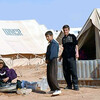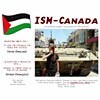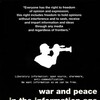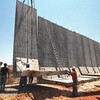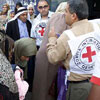
ICRC ends large-scale relief for Palestinians
20 November 2003
The ICRC’s large-scale distributions of relief aid to several hundred thousand Palestinians living in the towns and villages of the West Bank came to an end in mid-November 2003. Since June 2002, the ICRC had provided urgently needed aid to 300,000 people struggling to make ends meet. However, humanitarian aid is no longer the best way to help them. It is essential that the West Bank Palestinians’ basic rights under international humanitarian law are respected. In the long term, humanitarian aid cannot be a viable solution to the crisis. Read more about ICRC ends large-scale relief for Palestinians

